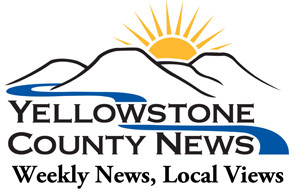The Heights County Water Board’s meeting last Wednesday was quite short compared to normal meetings, at least the public portion was. After about a half hour, the Board closed the meeting to the public to discuss “legal” issues.
The meeting was a continuation of the previous week’s regularly scheduled monthly meeting that ran long. The primary focus of the continued meeting was to discuss and change numerous by-law issues. The most significant change was to change the bylaws to conform with the state law which restricts the amount of compensation paid to board members to $100. The Water District Board had increased that amount, in contradiction to state law, to $150 quite a number of years ago. Discussion about the issue left it rather uncertain as to when that change was made, but there had been no change in state law.
Board members were being paid even when they did not attend meetings, as was the case when three members of the board did not attend any meetings for several months last year.
When President Doug Kary announced that they were going to close the meeting to discuss “legal issues,” the Yellowstone County News reporter asked what more specifically were the issues to be discussed. No specifics were given, but one of the legal issues in which the board is involved is its suit against Yellowstone County Commissioners regarding whether the commissioners’ appointee to the board could be removed by a vote of the board.
While recent action by the state legislature may have rendered that issue moot, there has been no movement in the case by the court. If the board’s discussion was about that case, the reporter pointed out that Montana state law does not allow closed discussion of legal issues in which both parties are government entities.
While there was some indication that the lawsuit might be the issue being discussed, it was not made clear. Kary said that the board was not going to take any action.
According to the Freedom of Information Deskbook, a government agency may close a meeting “when an open meeting would have a detrimental effect on the litigating position of the public agency.” 2-3-203(4) Mont. Code Ann (2003).”
However, state law restricts a closed meeting when the litigation is between two governmental entities. “A meeting cannot be closed to discuss litigation in which only public agencies are involved. Associated Press v. Bd. of Pub. Educ., 246 Mont. 386, 804 P.2d 376 (1991).
The document also makes clear that a “right to privacy” in the Constitution pertains only to an individual citizen, there is no right to privacy for an agency or board or any governmental authority. And, there is no such right if it is not claimed by the individual involved. It states, “When a matter of individual privacy is being discussed, the presiding officer may close the meeting upon determining ‘the demands of individual privacy clearly exceed the merits of public disclosure.’” 2-3-203(3) Mont. Code Ann. (2003). If the person who is being discussed waives the right of privacy, the meeting must be open. 2-3-203(3) Mont. Code Ann. (2003).”

